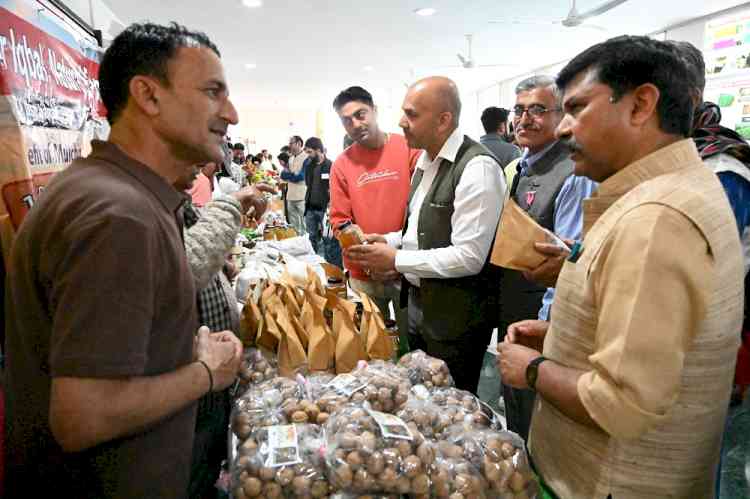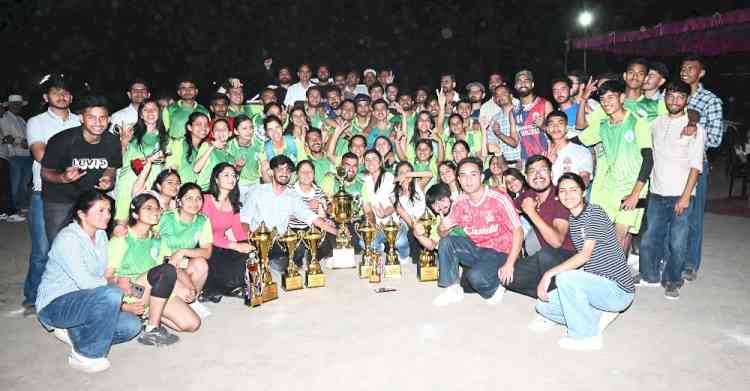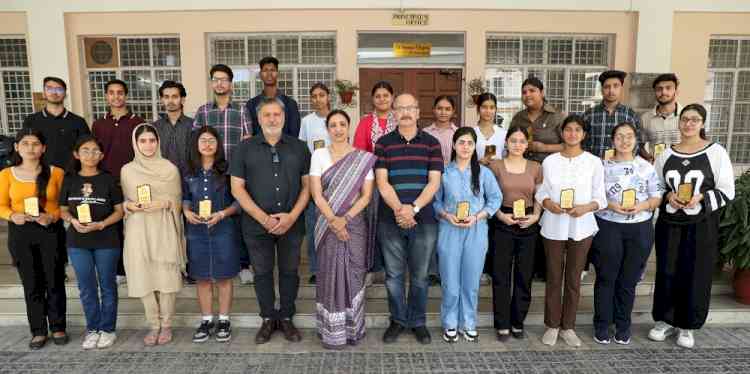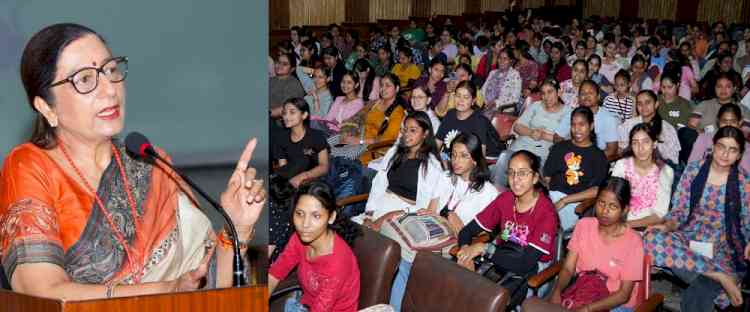Natural Farming is the Sustainable Future: Nek Ram Sharma
Over 500 Farmers, Policymakers, scientists discuss the Future of Natural Farming at Nauni

Nauni: A groundbreaking one-day Regional Mega Natural Farming Consultation and Workshop took place at the Dr YS Parmar University of Horticulture and Forestry (UHF) in Nauni, Himachal Pradesh. The event brought together over 500 farmers, scientists, agricultural entrepreneurs, and government officials from Punjab, Haryana, Rajasthan, Uttarakhand, Jammu and Kashmir and Himachal Pradesh. This consultation was jointly organized by the National Mission on Natural Farming (NMNF) and the National Centre for Organic and Natural Farming (NCONF), Ghaziabad. The primary objective of the workshop was to raise awareness, build capacity, and facilitate the certification process for natural farming practices. By fostering knowledge-sharing, policy dialogue, and practical learning, the event aimed to position natural farming as a sustainable and viable alternative to conventional chemical-based agriculture.
Nek Ram Sharma: Champion of Natural Farming and Biodiversity
In his inaugural address, Padma Shri awardee and progressive farmer Nek Ram Sharma highlighted the role of natural farming in preserving farm biodiversity. He emphasized that collective responsibility is essential for conserving biodiversity and maintaining ecological balance. Reflecting on his own journey in adopting natural farming, Sharma introduced his well-known 'Nau Anaaj' (9 Grains) principle and urged young farmers to be patient during the transition to natural farming. He also called on students and farmers to focus on conserving local biodiversity and protecting forest ecosystems, stressing that the shift towards environmentally friendly farming practices is no longer optional—it is imperative for the future of the planet.
Prof. RS Chandel, Vice Chancellor of UHF Nauni, who has been at the forefront of natural farming research, stressed the importance of reducing farmers' dependence on external markets. He advocated for maximizing profits through locally available, eco-friendly farming solutions and ensuring that local populations are the primary beneficiaries of healthy, natural produce. Prof. Chandel also discussed Himachal Pradesh's innovative CETARA certification system for natural farming, which provides a cost-effective and hassle-free certification process for farmers, giving them a competitive edge in the marketplace. He further commended the efforts of the Assistant Technology Managers and Block Technology Managers, who have been instrumental in promoting natural farming practices across diverse terrains—from plains to high-altitude cold deserts. He also thanked the Himachal Pradesh government for its support in setting the Minimum Support Price for maize and wheat grown through natural farming.
Dr. Gagnesh Sharma, Director of NCONF, praised the farmers who have embraced natural farming and presented an overview of the mission’s goals, including the establishment of over 10,000 Bio-Input Resource Centres (BRCs) across India. He noted that the government is actively promoting natural farming nationwide, with states like Himachal Pradesh, Andhra Pradesh, and Gujarat leading the charge. The ambitious target is to involve 1 crore farmers in natural farming in the coming years. Dr. Sharma emphasized that the shift to natural farming is now a necessity, not a choice, and praised UHF Nauni's pioneering research in this field.
Umendra Dutt from Kheti Virasat Mission underscored the importance of recognizing farmers who have led the charge in educating society about chemical-free farming. He called for the government to gradually increase funding for the promotion of natural farming practices, ensuring its widespread adoption.
Dr. Inder Dev, Director of Extension Education and Workshop Coordinator at UHF Nauni, explained that the workshop served as an interactive platform for stakeholders to understand the government's efforts in promoting natural farming. He highlighted the university's achievements, including its designation as a national center for natural farming under the National Mission on Natural Farming. He added that the university is also collaborating with national and international organizations to further promote natural farming and is working with four Farmer Producer Companies (FPCs) to build capacity with the support of the state government and NABARD. Additionally, the university is developing a Sustainable Food Systems Platform to support natural farming practices.
Recognizing Pioneers in Natural Farming
During the event, several progressive farmers were honoured for their outstanding contributions to natural farming. Exhibits from various natural farming farmer producer companies were also showcased, demonstrating the success and impact of this approach.
Technical Sessions and Key Discussions
Two technical sessions were held, featuring expert presentations and discussions on advanced natural farming techniques. Topics covered included soil health improvement, pest and disease management without synthetic chemicals, resource optimization, and cost-effective methods. Additionally, policy integration, market development, and certification systems were discussed to help farmers expand their natural farming practices and contribute to the broader agricultural transformation. Real-life experiences from farmers practicing natural farming were shared, underscoring its economic and ecological benefits. These sessions provided valuable insights into the implementation framework for the Mission Natural Farming, including consultations on BRCs and the certification process.
The event fostered dialogue, knowledge exchange, and collaboration among key stakeholders, setting the stage for scaling up natural farming practices. The workshop emphasized the need for a structured national framework to guide the expansion of natural farming while addressing existing challenges and ensuring its sustainable growth.


 City Air News
City Air News 










